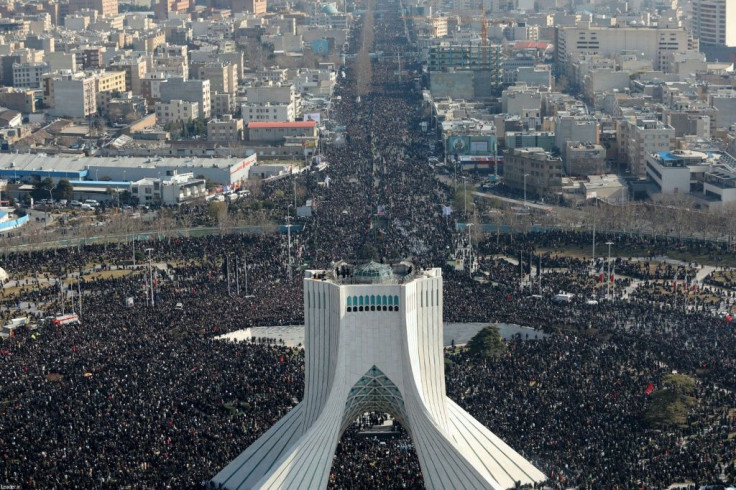Global Stocks Breathe Easier, But Traders On Alert

Equities were a mixed bag Tuesday but oil prices declined as fears of a Middle East conflict abated and investors turned their attention back to US-China trade issues.
Positive US economic news also appeared to limit losses.
With few major developments in the crisis sparked by the killing of Qasem Soleimani last week, traders were able to focus on the global economic outlook and the US-China trade deal signing planned for January 15.
"In the eyes of investors, the US-China trade deal is more important than the US-Iran conflict," summed up Fawad Razaqzada, a market analyst at Forex.com.
As European trading closed for the day, the stock indices in London and Paris were essentially unchanged, while Frankfurt had gained 0.8 percent.
Wall Street's Dow index showed a slight loss of 0.3 percent however.
Asian markets had been broadly higher earlier in the day, with Tokyo ending 1.6 percent up, Hong Kong adding 0.3 percent and Shanghai rising 0.7 percent.
Oil prices declined, taking the share price of major oil companies with them.
In London, shares in BP ended the day 1.05 percent lower at 195.50 pence, while Shell's "B" shares were down by 0.63 percent at 2,299 pence.
Gold slipped from six-and-a-half-year highs, but nonetheless ended the day in Europe with a slight gain of 0.3 percent
"Putting to one side the heat and noise of the events of the last few days, and in the absence of further violence and escalations, the reality is that very little has changed," concluded CMC Market analyst Michael Hewson.
Meanwhile, a drop in imports cut the US trade deficit in November and put the country on track to post its first annual decline in six years, Commerce Department data showed.
The trade gap -- the difference between what the United States buys from and sells to international trading partners -- fell by 8.2 percent in November to $43.1 billion, lower than economists had expected and the lowest since October 2016.
With the drop likely to be trumpeted by the US administration as vindication of its hard line with China, "other countries are likely to be nervous that they could soon find themselves in the president's cross hairs," commented James Knightley at the Dutch bank ING.
Another bit of good news came from the Institute for Supply Management's services index, which added 1.1 point to 55 in December, putting the largest segment of the US economy solidly in growth territory.
London - FTSE 100: FLAT at 7,573.85 (close)
Paris - CAC 40: FLAT at 6,012.35 (close)
Frankfurt - DAX 30: UP 0.8 percent at 13,226.83 (close)
EURO STOXX 50: UP 0.2 percent at 3,759.25 points
New York - Dow: DOWN 0.3 percent at 28,633.61
Tokyo - Nikkei 225: UP 1.6 percent at 23,575.72 (close)
Hong Kong - Hang Seng: UP 0.3 percent at 28,322.06 (close)
Shanghai - Composite: UP 0.7 percent at 3,104.80 (close)
West Texas Intermediate: DOWN 1.3 percent at $62.43 per barrel
Brent Crude: DOWN 1.3 percent at $68.02
Pound/dollar: DOWN at $1.3115 from $1.3171 at 2200 GMT
Euro/pound: DOWN at 84.92 pence from 85.01 pence
Euro/dollar: DOWN at $1.1138 from $1.1197
© Copyright AFP 2024. All rights reserved.





















